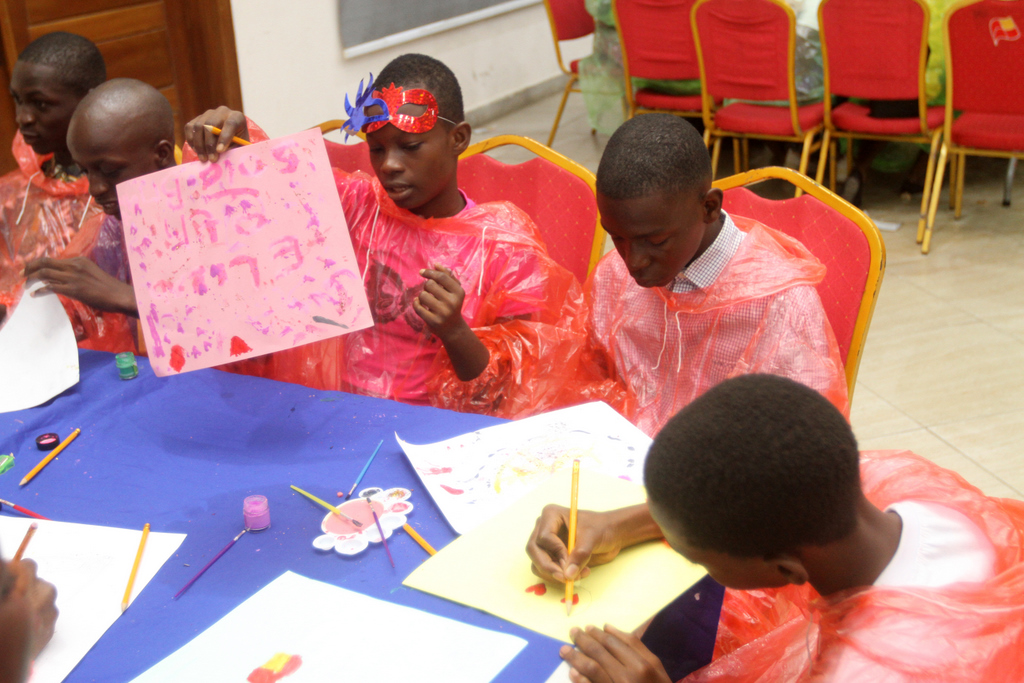
Participants showing their artistic prowess at the training.
The Lagos State Chapter of Child Protection Network CPN in her thoughtfulness organized a Training on Mental Health and Psychosocial Support (MHPSS) for Community/Children Representatives.
Newsconnect reports that the state coordinator of CPN Aderonke Oyelakin at the event highlighted the reason CPN Lagos is prioritizing the training this year for these children.
On the first day of the training,142 children and 78 adults came from Mushin LGA, Ikosi Isheri LCDA, Agboyi Ketu LCDA and Ejigbo LCDA respectively.
The training was conducted on Monday September 8th 2025, between 9am-2pm at Bimbo Odukoya Foundation.
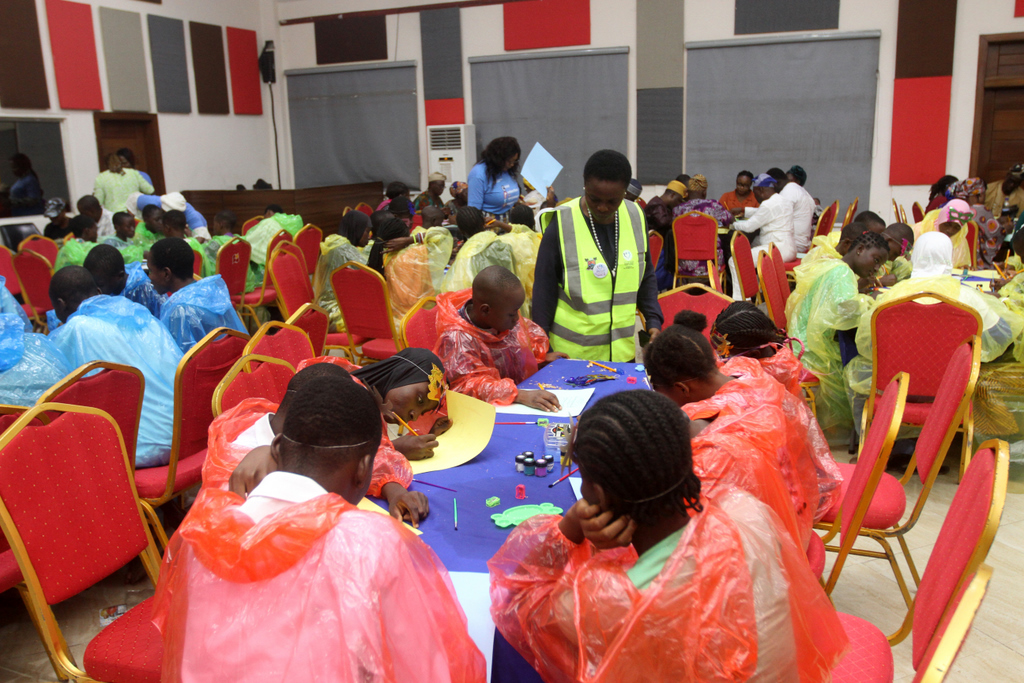
The same training on Wednesday, 10th September was replicated at Orimedu Community in Ibeju Lekki which include 34 children and 23 adults.
Each of the early birds were presented a book gift by the executive coordinator of the Bimbo Odukoya Foundation who doubles as the CPN’s state coordinator.
The state coordinator of CPN, Amb. Aderonke Oyelakin among other things in her opening salvo appreciated the main sponsor of the event, SOS Children’s Villages Nigeria for their continuous support.
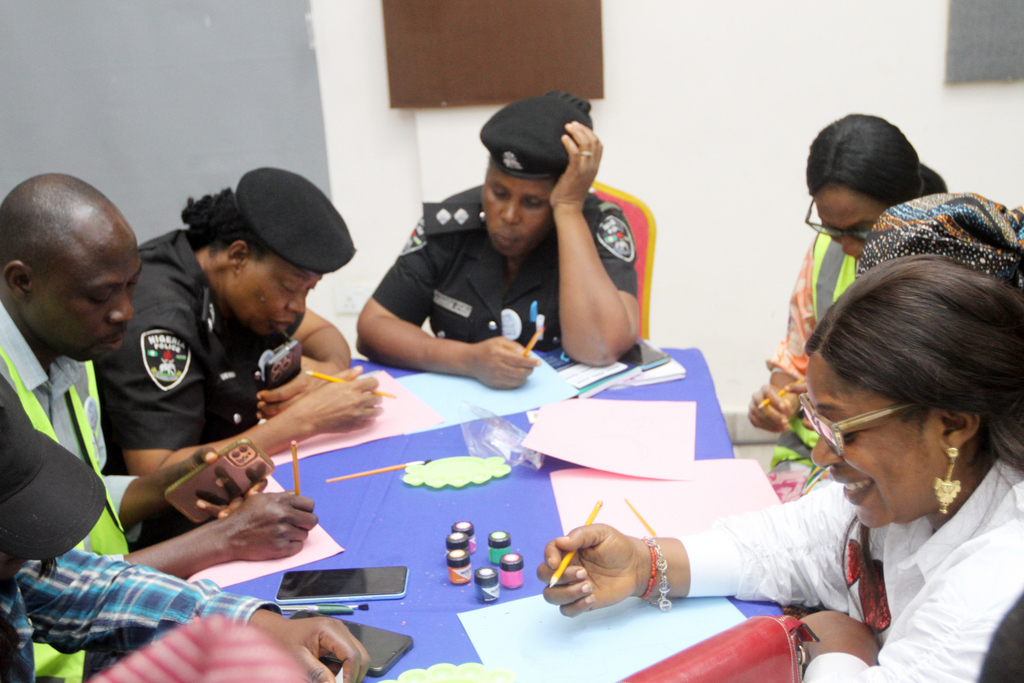
She said Art-based therapy serves to improve overall well-being. She said by using the creative process and artwork to explore emotions, in an interview with this medium she said;
“We all should prioritize our mental health. Prioritizing mental health means recognizing its equal importance to physical health, actively taking steps to support your emotional, psychological, and social well-being, and advocating for better mental health services globally.
“Key actions include establishing healthy routines like regular exercise and good sleep, setting boundaries to prevent burnout, and seeking professional help when needed.
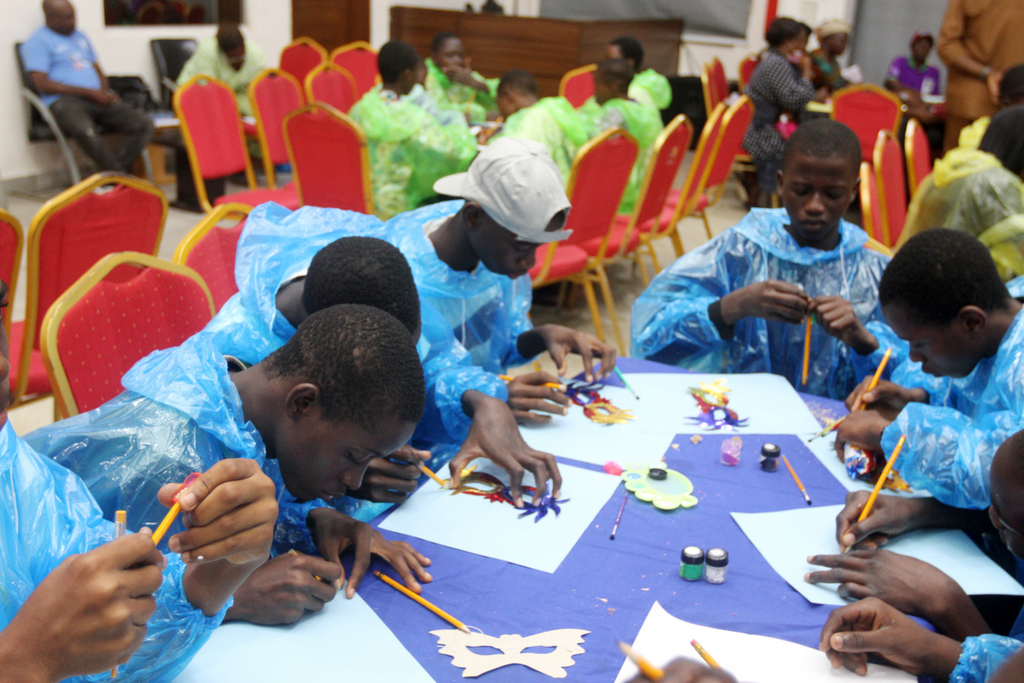
“For communities, this translates to improving mental health policies, increasing access to care, and promoting positive school and community environments.
“As a network we are committed to ensuring that every child is free from any forms of abuse and their mental health is our priority”. She said.
“It enhances self-awareness, develops coping skills, and reduce stress, anxiety, and depression for both children and adults.
“It provides a non-verbal means of expression, particularly beneficial for those who struggle with communication, and fosters personal growth, self-esteem, and social skill development in a safe, therapeutic environment”.
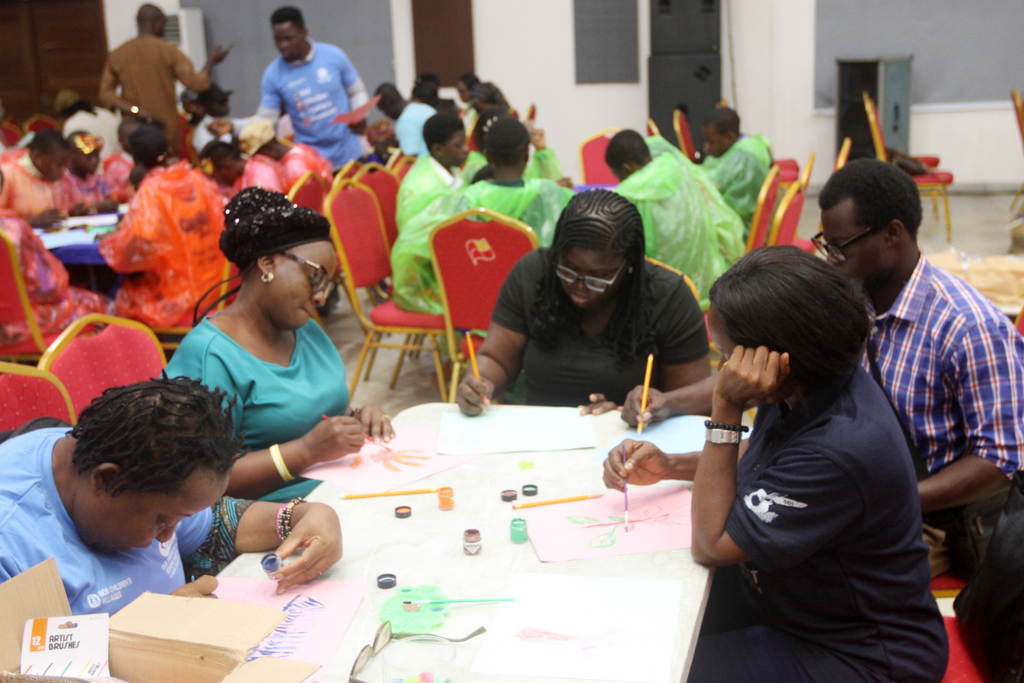
The training posited that art help Children in the following ways:
Emotional Regulation: Art provides a safe outlet for children to express complex feelings and manage stress, anxiety, and depression.
Self-Esteem and Confidence: Through the creation of art, children can experience a sense of accomplishment, which builds their confidence and self-worth.
Communication Skills: Art therapy helps children, especially those who struggle with verbal communication, to express their thoughts and feelings more effectively.
Social Skills: Creating art in a therapeutic setting fosters empathy, promotes pro-social attitudes, and develops social skills.
Cognitive and Motor Skills: The process can improve visual-spatial skills, fine motor skills, and problem-solving abilities.
In the same vein, the training also posited that Art also provides adults the following benefits:
Emotional Insight and Self-Awareness: Adults can explore their inner experiences, feelings, and perceptions through creative expression, leading to greater self-understanding.
Coping Mechanisms: Art therapy equips adults with new coping strategies to manage stress, anxiety, depression, and other mental health challenges.
Trauma and Conflict Resolution: The therapeutic process allows for the exploration and resolution of unresolved conflicts or past trauma in a safe space.
Mental Health Improvement: It serves as an effective adjunct treatment for various mental health conditions, including depression, anxiety, and schizophrenia, improving overall functioning
Sense of Agency and Well-being: Art therapy fosters a sense of agency and personal well-being, contributing to better mental and physical health.
Common Purposes for Both
Creative Expression: To provide a non-verbal outlet for thoughts, feelings, and experiences.
Personal Growth: To help individuals gain insight, develop self-awareness, and achieve a greater sense of personal well-being.
Therapeutic Relationship: To facilitate change and healing within a safe and supportive psychotherapeutic relationship with a therapist.
Non-Pharmacological Intervention: To offer a non-drug-based method for addressing emotional and psychological challenges.
Practical sessions during the training includes an Icebreaker by Mrs Olajumoke Otitoloju and she took the participants on Expressive Art – “My Feelings Tree” children draw/paint a tree showing emotions as fruits/leaves. Using Emotional expression Paper, crayons, poster, colors, clay,etc.
Energizer Game; Dance Freeze Movement, fun, attention was done and all the LGAs represented participated actively.
